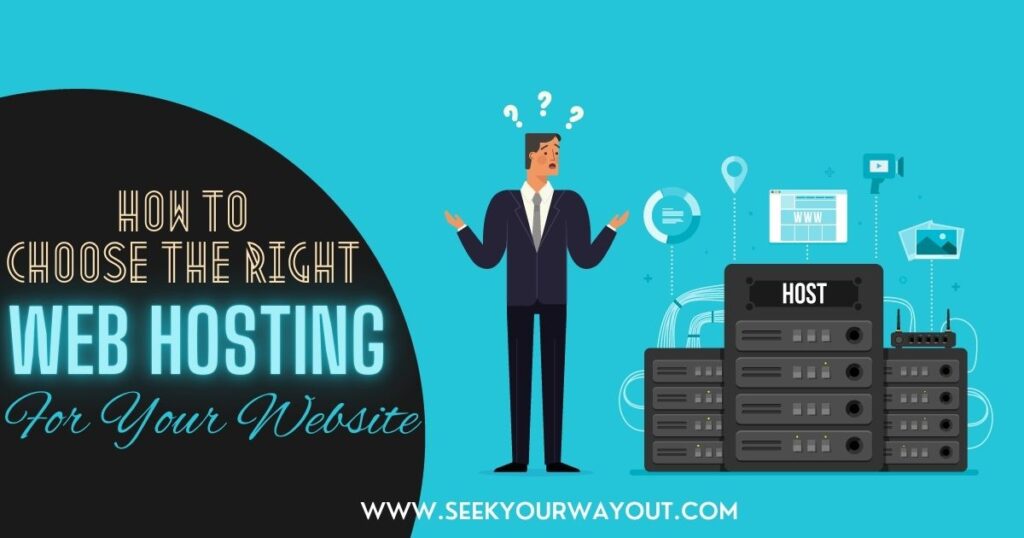If you are about to launch your online project and you are going to base your online marketing strategy on SEO, surely you are wondering what to do with web hosting to get the best possible result. What is the best web hosting for SEO?
At this moment there are hundreds of thousands of companies or projects similar to yours. If your business is just one among many… How to stand out? While it’s challenging to get noticed, don’t be overwhelmed, because there are methods you can work on so you can stand out and be successful. If you are here you probably already know that SEO is your best friend when it comes to achieving online visibility. It is an arduous process, but free, and reliable, and will always be by your side to help you.

When we talk about SEO we are not just talking about a strategy or a magic pass that will solve your problems overnight, there are several factors that can affect your ranking in Google. Of course, some of the most important ones are backlinks, content, and website structure. However, there is another factor that you should not neglect and that is your hosting provider.
What is a Hosting Service?
To explain it in a simple way, the website hosting service is what allows Internet users to see your website. It is basically a computer that stores your site’s files and shares them through a great network of networks. The companies that offer this type of service have (supposedly) the appropriate technologies to make your information available to everyone and protect it.
As you can see, it is not something to take lightly, since it is the heart of all the efforts you make to have an online presence.
Types of Web Hosting
Choosing an ideal hosting plan for your website is very important and that can be carried out when you know the types of web hosting available. Let’s have a look at the main ones.
Shared hosting is an economical option since the providers can host dozens of sites on a single server and the operating expenses are shared. It’s a great option if your website is small and you don’t have many visitors. That’s because you don’t need a lot of disk space or bandwidth that high-traffic sites need. But if you get a lot of traffic, it might not be supported due to limited resources.
In this you are sharing server resources with other users: disk space, CPU, RAM, monthly transfer, bandwidth and IP address. The latter, the IP, is a very important factor to consider when it comes to SEO. Why? Because if another user is resorting to SEO strategies that Google can penalize, you will have your part even if you are doing the most correct and clean work in the world. Hence, if you really want to position your website in the first place on Google, I do not recommend shared hosting.
Virtual Private Server (VPS)
Virtual Private Servers (VPS) are virtual partitions within a physical server, so they work as independent servers. This means that you have full control of your VPS and it is more secure than shared hosting. But just like this one, you have to share the physical server resources with other users.
The advantage of using VPS hosting for SEO is that being more efficient, this technology provides better uptime and page load time. Hence, it is generally used by website owners who generate mid-level traffic that exceeds the capabilities of shared hosting.
Dedicated Server
A dedicated Server is only recommended for large sites with multiple media elements and/or fairly high traffic. Your site will be stored on a dedicated server and all resources will be dedicated, so you won’t have to worry about loading speed or bandwidth. This is the most expensive option, but it is essential if you want your website to continue loading quickly even if there are 5,000 people visiting it at the same time.
Now, there are also two types of hosting that we never recommend because they can be detrimental to your business:
- Platforms with Pre-Made Websites: The “all-in-one” websites, such as Wix or Webs. The problem with these pages is that they are usually very poorly optimized for SEO.
- Free Hosting: You can use them to create test websites, but they are so unstable that your page will be constantly down. They are not a good option for a professional website, even when you are just starting out.
How to Choose the Best Hosting for SEO?
Now that you know what the types of hosting for SEO are, it is advisable to take into account a series of factors and characteristics that will help you to choose the right hosting for your website.
👉 1. Page Loading Speed
Loading time is a fundamental SEO factor, Google does not like slow web pages. As per Google’s blog, slow web pages harm the user’s web experience and therefore it is an element that Google takes very seriously. Under this official version, there is also an underlying element that Google does not openly indicate, but that is important to take into account and that is that Google robots take much longer to analyze a website that takes time to load than a website that loads fast. The longer it takes to load a website, the slower it will be reviewed by a Google robot or spider that crawls websites on the Internet.
My Recommendation: SSD Drives
SSDs are a special type of hard drive. The difference with the normal ones is that the speed at which they transmit data is much higher. And that means that your website will load faster. Most hosting services already offer SSD disks even in their most basic plans, but it is important that you keep this in mind.
👉 2. Security
Another important factor is security. By default, if your website does not have an SSL certificate, Google will consider that it is not secure and, therefore, it will not position it very well. The SSL certificate is a security protocol that protects the data of your clients (personal data, bank data, etc.) against hackers.
You might think that this is not important because you do not handle sensitive information on your website and you would be partly right. The problem is that if you don’t have this SSL certificate installed, every time a user tries to access your website, the message “This website is not secure” will appear. And it is very possible that this will generate mistrust and leave without entering. So it is better to avoid problems and look for a hosting plan that includes it.
👉 3. Server Location
The location of our hosting is a factor (although not a determining factor today) that also affects to a certain extent the loading time of our website, to try to generate the fastest possible system in terms of loading time, it is advisable to choose for a web hosting that is located in the same continent or the same country where the majority of our users are located.
This is not fundamental, but it is interesting that you keep it in mind. The data on your website travels from the server on which it is hosted to the user’s browser. So if the server and the browser are in different countries, this loading speed is reduced. If the server is located in the same country, we will be able to improve the loading time of our website, offering an improvement in the experience of our users that will be valued positively by Google, rewarding us with better positioning for our website.
👉 4. Uptime/Downtime
Uptime is basically the time the server is running without interruption, and Downtime is the opposite of Uptime and refers to the time that your website is offline, or unreachable in a region or in the entire network. This is important because it tells you how long your website will be available to visitors.
I bet you prefer your website to be up and running all the time, at least as much as possible, so that customers will always find it available to them. Because when it coincides with your website being down, you lose a potential customer.
Frequent inaccessibility will lead Google to mark your website as untrustworthy. They are not going to give websites that are most of the time offline a high ranking. They want to show only the best possible results. And availability is a quality factor. When choosing a hosting service provider, it is important to consider what their average Uptime is.
👉 5. Storage Capacity
This point usually generates quite a few doubts. Many people think that a server that offers them 10 GB of storage is more recommendable than another with 5 GB, and they end up paying for space that they do not use later. Actually, for most of the pages, it is more than enough to have between 1 and 5 GB of storage.
The only exception is that you have a website with hundreds of pages and/or a lot of high-quality images and videos (which are the elements that weigh the most), as could happen in e-commerce. Barring those cases, and as long as you remember to optimize the images you upload, your server storage shouldn’t be too much of a concern.
👉 6. 24/7 Support
If there is a point that differentiates a good hosting company from a bad or mediocre one, that is its customer service. Think that when you have a professional website there can be a thousand complications:
- The server goes down and the visits stop coming.
- A virus infects your website (or it gets hacked and you lose access).
- The upload speed drops to the middle from one day to the next without knowing why.
- A plugin that you just installed blocks the web and you cannot deactivate it.
I could go on like this for a while, but I’m sure you get the idea. I do not intend to scare you. But the reality is that sometimes technical problems are unavoidable and they can lead to the loss of customers.
That is why we place so much emphasis on the fact that when you choose a hosting company you make sure that it offers a good support service, that they respond quickly, and that, if possible, they attend 24 hours a day. This way you will sleep more peacefully.
👉 7. Automatic Installer
The automatic installer is not something necessary. It is a tool offered by most hosting services. It basically allows you to do all the essential web configurations (create the database and install the CMS) with a single click. If you don’t have any knowledge of how to install a CMS, at a minimum, the plan you choose should include automatic WordPress installation. Normally, you will find this function in almost any plan.



